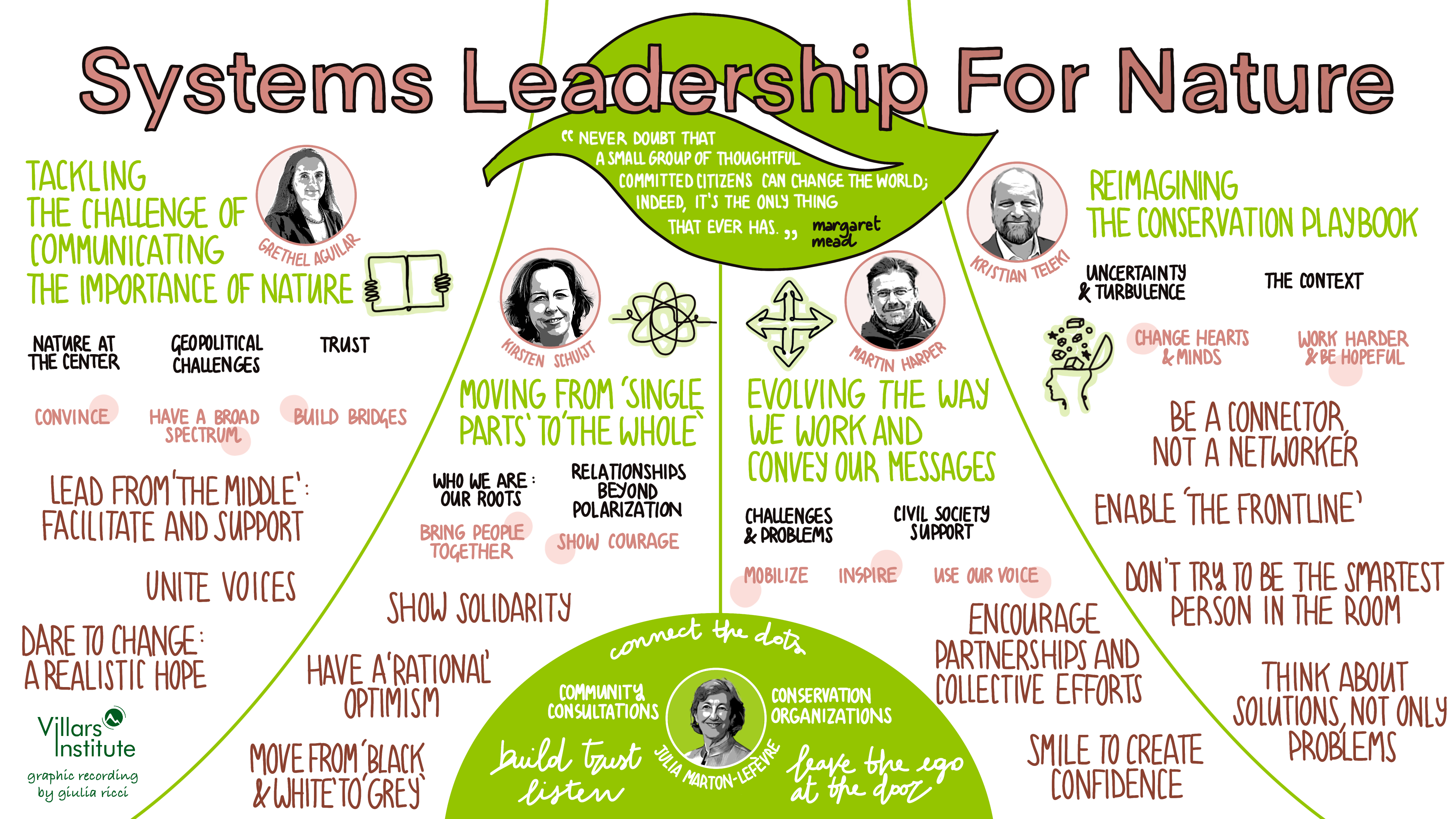Ideas from the Speakers
The session explored many aspects of systems thinking and the characteristics of system leaders. A speaker noted the importance of enjoying the process of working on problems, emphasizing the need for optimism and resilience. The speaker used the example of bird watchers to explain the need for compelling narratives. In the United States alone, 100 million people claim they love birds, yet very few find importance in the work of bird conservation. An emotional narrative could get these people onboard with conservation.
A panelist underlined the alarming and deeply saddening nature of the rapidly changing geopolitical situation. Greater leverage is needed to convince people to find importance in nature and to push others to action, which can be difficult as most people are more concerned about their own food, water, and health than about nature itself. The panelist highlighted that by building bridges and fostering trust, organizations will be able to communicate their message more effectively and engage a wider audience.
Another expert restated the turbulent times happening around the world, reminding the audience that no one can control all the uncertainties, so it is not worth wasting their time on them. The speaker used the three words of reimagine, reinvent, and reconnect to give the audience a tangible framework to move forward. Progress is still being made, serving as a reminder to remain optimistic. As no one can solve all the issues on their own, it is important to focus on one “slice of the pizza.”
A speaker underlined the importance of bringing people together to find ways to understand the whole picture; in short, the more people who understand the system, the quicker society will be able to move forward. Humans have the ability to thrive in chaos, and it is in these moments that it is important to stand up and show courage. This resonated with the previous panelists’ call for hope and action.
Insights from the Audience
The second part of the session examined the key characteristics of systems leadership, with panelists sharing insights from their experiences. Connecting all the dots is an important, and often difficult but necessary task in addressing large-scale environmental issues. Systems leaders must possess energy, humility, strong communication skills, and the ability to listen across cultures. Optimism and appreciation for work itself also play a crucial role.
A panelist highlighted how large organizations, despite their complexity, function effectively when all parts remain connected, emphasizing the importance of solidarity and collaboration beyond traditional boundaries to counter the current polarization of society. In navigating the “gray areas” where solutions are rarely black and white, leaders must remain resilient, optimistic, and open to emerging opportunities. Another expert underlined the necessity of seeing the bigger picture. Systems leadership requires not just vision but also the confidence to inspire others to act, because one cannot do everything on their own.
Another panelist spoke about the evolving nature of leadership, emphasizing that today’s leadership is not the same as it was yesterday or as it will be tomorrow. An example is Indigenous communities, where female leadership often takes place from the center, guiding and influencing others without always being in the spotlight. In addition, a good systems leader should be able to unite the voices they are leading.
Another expert reflected on their own journey, realizing only in retrospect that they themselves had been a systems leader for years. It is important to be a connector rather than simply a networker, to help others rather than to seek one’s own advantages. True systems leadership involves bringing solutions to the table, however unconventional, and investing in frontline efforts to amplify impact.
Throughout the session, the speakers reinforced a central theme: systems leadership is about uniting voices, embracing complexity, and daring to change. By fostering realistic hope and continuous evolution, leaders can drive the systemic transformation needed to restore and protect our planet.








